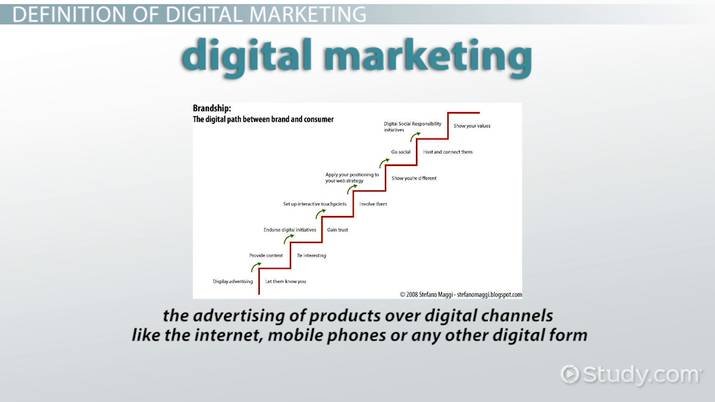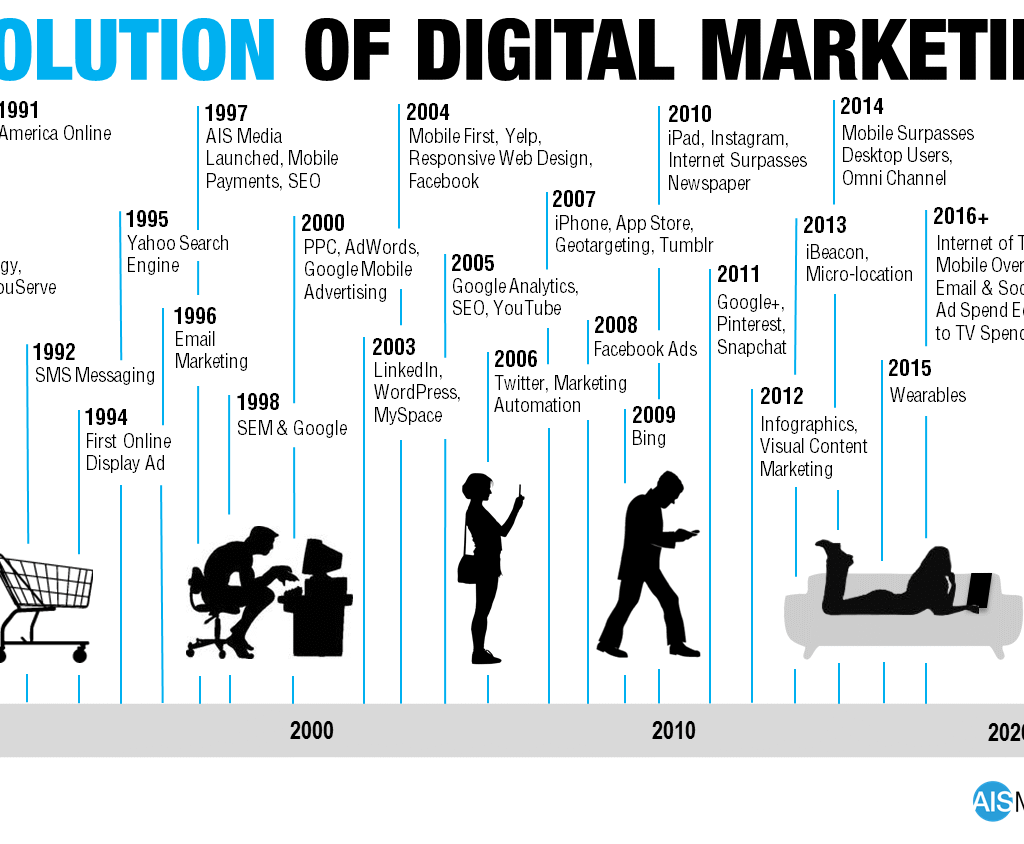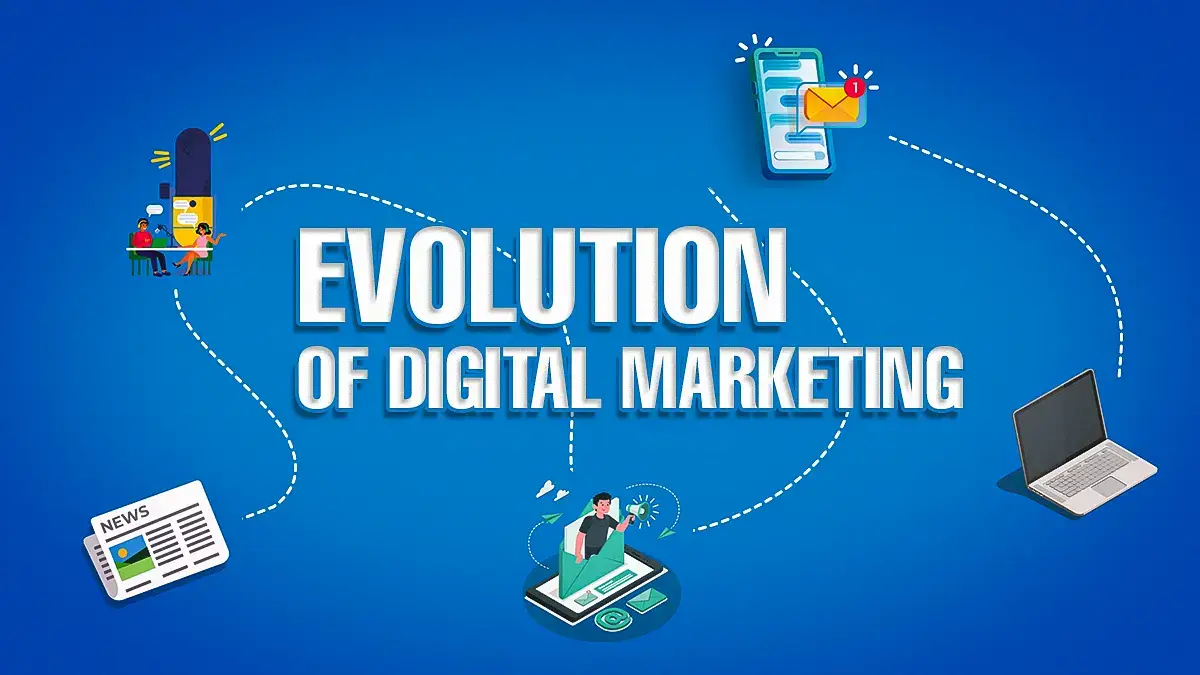History and Evolution of Digital Marketing
The history of digital marketing is a fascinating journey that spans several decades, transforming how businesses connect with their audiences. From humble beginnings to today’s sophisticated landscape, the evolution of online advertising has revolutionized the way companies approach marketing strategies.
The History and Evolution of Digital Marketing showcases the milestones that have shaped the industry, highlighting key innovations that revolutionized how brands engage with consumers.
The History and Evolution of Digital Marketing reflects the transition from traditional to digital channels, emphasizing the growing importance of online engagement.
Table of Contents
Understanding the History and Evolution of Digital Marketing
Understanding the History and Evolution of Digital Marketing is crucial for marketers looking to leverage digital tools effectively.
The History and Evolution of Digital Marketing indicates how businesses adapted to technological changes that enhanced customer outreach.
The Dawn of Digital: Marketing Before the Internet Era
Exploring the History and Evolution of Digital Marketing reveals insights into successful strategies that have emerged over the years.
The History and Evolution of Digital Marketing highlights the rapid advancement of tools that facilitate better consumer engagement.
Before diving into the digital revolution, it’s essential to understand marketing before the internet. Businesses relied heavily on traditional methods such as print advertisements, radio commercials, and television spots. These approaches, while effective for their time, lacked the precision and measurability that would later define digital strategies.
As we analyze the History and Evolution of Digital Marketing, we see a clear trend towards personalization and data-driven strategies.
The History and Evolution of Digital Marketing demonstrates the increasing significance of analytics in driving successful campaigns.
The shift from print to digital began in the 1990s when businesses started recognizing the potential of the emerging internet. This transition marked the beginning of a new era where companies could reach global audiences instantly and track their marketing efforts with unprecedented accuracy.
In examining the History and Evolution of Digital Marketing, one realizes the shift towards interactive and engaging content.
The History and Evolution of Digital Marketing is a testament to how brands can connect with consumers on a deeper level.
The Birth and Growth of Internet Marketing
Understanding the History and Evolution of Digital Marketing informs future strategies for reaching target audiences effectively.
The History and Evolution of Digital Marketing plays a vital role in shaping modern marketing techniques.
Brands that understand the History and Evolution of Digital Marketing can leverage past insights for future success.
The growth of internet marketing can be traced back to the mid-1990s when the first banner advertisements appeared on websites. This period marked the beginning of what we now recognize as digital advertising. Companies began experimenting with online presence, creating simple websites and exploring new ways to engage with customers.
The History and Evolution of Digital Marketing showcases the importance of adapting to new consumer behaviors and expectations.
The evolution of online advertising accelerated rapidly as internet adoption increased. Search engines like Yahoo and later Google emerged, providing new platforms for businesses to showcase their products and services. This development laid the groundwork for what would become one of the most significant aspects of digital marketing.
Analyzing the History and Evolution of Digital Marketing allows marketers to anticipate trends and stay ahead of the competition.
The History and Evolution of Digital Marketing provides a framework for understanding how technology reshapes marketing efforts.
Digital Transformation in Marketing
The concept of digital transformation in marketing became prominent in the early 2000s. Businesses began integrating digital technologies into all aspects of their marketing operations, fundamentally changing how they operated and delivered value to customers. This transformation wasn’t just about adopting new tools; it represented a cultural shift that required organizations to continually challenge the status quo.
Digital transformation in marketing enabled companies to create more personalized experiences for their customers. Data collection and analysis became crucial components of marketing strategies, allowing businesses to understand customer preferences and behavior patterns better than ever before.
Traditional vs Digital Marketing: A Comparative Analysis
The comparison between traditional vs digital marketing reveals significant differences in approach, cost, and effectiveness. While traditional marketing methods provided broad reach through mass media, digital marketing offered targeted precision and real-time engagement capabilities.
Traditional vs digital marketing differs primarily in measurement and interaction. Digital platforms allow for immediate feedback and adjustment, while traditional methods often require longer periods to assess effectiveness. This shift has led many businesses to reallocate their marketing budgets toward digital channels.
The Rise of Social Media Marketing
The rise of social media marketing began in the mid-2000s with platforms like MySpace and Facebook. These platforms revolutionized how businesses interacted with their audiences, creating opportunities for direct communication and community building.
The rise of social media marketing has continued to evolve with new platforms emerging regularly. Instagram, Twitter, LinkedIn, and TikTok have each contributed unique features and audience segments, allowing businesses to diversify their social media strategies.
Social media platforms have become essential components of modern marketing strategy, enabling businesses to build brand awareness, engage with customers, and drive sales through targeted advertising and organic content.

Mobile Marketing Trends and Consumer Behavior Changes
Mobile marketing trends have shaped the digital landscape significantly since the introduction of smartphones. The widespread adoption of mobile devices has created new opportunities for businesses to reach consumers on-the-go, leading to the development of mobile-specific marketing strategies.
Changes in consumer behavior have accompanied the mobile revolution. Consumers now expect instant access to information, seamless experiences across devices, and personalized content tailored to their preferences and location.
These changes in consumer behavior have forced marketers to adopt multi-channel approaches, ensuring consistent messaging across all touchpoints while optimizing for mobile-first experiences.
Exploring the History and Evolution of Digital Marketing is essential for grasping the nuances of digital consumer engagement.
Marketers who study the History and Evolution of Digital Marketing can enhance their campaigns with proven strategies.
SEO and Content Evolution
The SEO and content evolution has been driven by search engine algorithm updates and changing user expectations. What began as simple keyword stuffing has evolved into sophisticated content marketing strategies that prioritize user value and engagement.
SEO and content evolution continues to shape how businesses approach online visibility. Content creators now focus on creating comprehensive, authoritative content that addresses user intent while maintaining technical optimization for search engines.
Paid Advertising Platforms and Email Marketing Growth
The development of paid advertising platforms has provided businesses with unprecedented targeting capabilities. Google Ads, Facebook Ads, and other platforms have created sophisticated systems for reaching specific audiences based on demographics, interests, and behaviors.
Email marketing growth has remained consistent throughout the digital marketing evolution. Despite predictions of its demise, email marketing has adapted to changing consumer preferences and technological advances, remaining one of the most effective digital marketing channels.
Email marketing growth has been supported by automation tools and personalization technologies, enabling businesses to create targeted campaigns that resonate with specific audience segments.
Digital Marketing Tools and Analytics Evolution
Digital marketing tools over time have evolved from simple tracking systems to comprehensive platforms that integrate multiple marketing functions. These tools have democratized access to sophisticated marketing capabilities, allowing businesses of all sizes to compete effectively.
Analytics in digital marketing has become increasingly sophisticated, providing detailed insights into customer journeys, campaign performance, and return on investment. Modern analytics platforms offer real-time data and predictive capabilities that help marketers make informed decisions.
Digital marketing tools over time have also become more user-friendly, with intuitive interfaces and automated features that reduce the technical barriers to effective digital marketing implementation.
Modern Marketing Strategy and Future Outlook
Today’s modern marketing strategy integrates multiple digital channels to create cohesive customer experiences. Businesses now employ omnichannel approaches that ensure consistent messaging across all touchpoints while personalizing interactions based on individual customer data.
Modern marketing strategy emphasizes data-driven decision making, customer-centric approaches, and continuous optimization. Marketers use advanced technologies like artificial intelligence and machine learning to enhance their strategies and improve results.
The Future of Digital Marketing
Looking ahead, the future of digital marketing promises continued innovation and evolution. Emerging technologies such as virtual reality, augmented reality, and voice search are already beginning to influence marketing strategies.
The future of digital marketing will likely see increased emphasis on privacy protection, ethical data use, and sustainable marketing practices. As consumers become more conscious of their digital footprint, businesses will need to balance personalization with privacy concerns.
Conclusion
The History and Evolution of Digital Marketing demonstrates the rapid pace of technological change and its impact on business practices.
Understanding this evolution helps marketers appreciate the current landscape and prepare for future developments. As digital marketing continues to evolve, successful businesses will be those that adapt quickly while maintaining focus on delivering value to their customers.
Ready to take your digital marketing to the next level? Work with us and drive real results! Visit https://kordry.com/ to get started today.



[…] Latest digital marketing strategies are being reshaped by technological advancements that enable more precise targeting, enhanced personalization, and improved measurement capabilities. The convergence of AI, voice technology, and immersive experiences creates new opportunities for brands to connect with audiences in meaningful ways. Learn More. […]